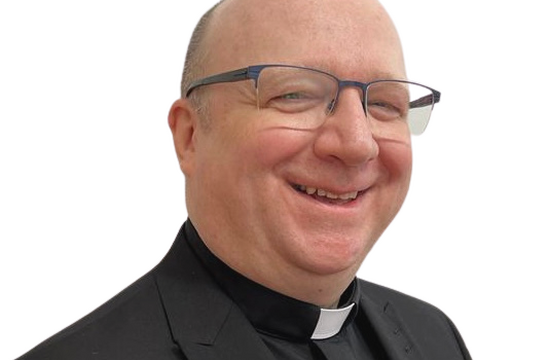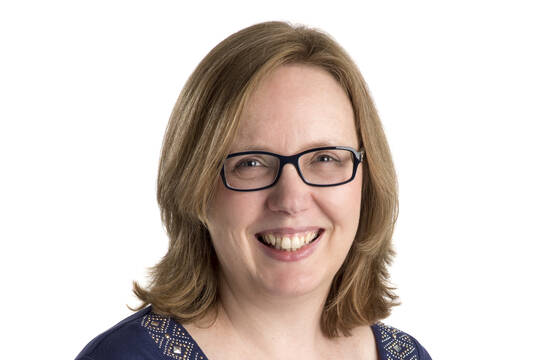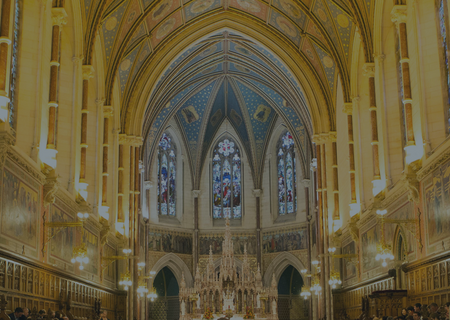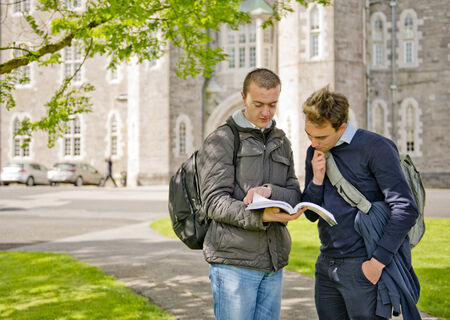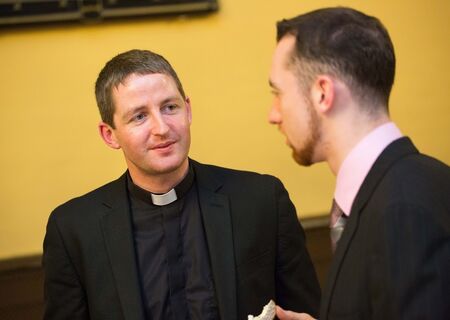Undergraduate
Programmes in Arts, Theology and Philosophy
Home / Undergraduate
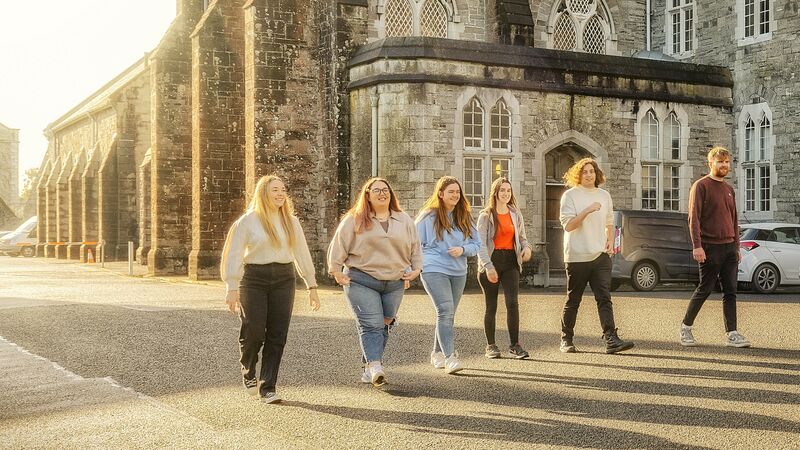
Undergraduate
at St Patrick's
An Education to Value
Learn more about our Programmes and Our Community
Apply Today
Your Maynooth Application. Find out all the information you need here, including a Step-by-Step Guid...
Outgoing Erasmus+ Students
Erasmus+ provides students of St Patrick's with the opportunity to continue their studies at one of ...
Fees and Grants
Our accounts team deals with all matters relating to course fees and grants.
Scholarships
The Pontifical University at Maynooth awards the scholarships and awards below. Preference is given ...
Prospectus
Read our undergraduate prospectus
Testimonial
Patrick Wilson 3rd year BATH explains why studying Theology and Arts at St Patrick's Pontifical University, Maynooth has been the best choice for him.
What's on Your Mind?
Frequently Asked Questions
The word “theology” comes from two Greek words: theos meaning God and logos meaning word. Together, they mean “speaking about the divine”.
Theology, as a field of academic study, refers to the disciplined inquiry into the religious dimension of human experience. It also has a more limited sense, in examining the beliefs of a particular religious tradition and community.
The study of theology involves so many aspects of people’s lives. Therefore it reaches across many subjects, including philosophy, history, the arts, and the social sciences.
Ultimately the study of theology deals with the fundamental nature of reality. It challenges those who study it to examine and clarify their own religious beliefs, values, and practices. It engages the whole person in a journey toward understanding and self-discovery.
Students who graduate in theology are trained to investigate and interpret human experience using a range of perspectives and methods. They learn how to critically engage with the beliefs and actions of individuals, faith-communities and societies. By doing so, Theology Graduates will have developed their written and oral communications skills. All of these abilities are important for success in post-graduate studies and employment.
Theology Graduates tend to be unique individuals with highly diverse career interests.
- Many prepare for teaching at either primary or secondary level. Others go on to have careers at university level.
- Others students take on a ministry. They go on to take positions in churches, social service agencies, or other religious organizations. A few can go on to join seminary in order to consider ordained ministry.
- Most of our students combine Theology with another field of study. Therefore many will go on to work in areas commonly associated with their parallel subject: for example, social work, history, education, counselling, and law.
- Some Theology Graduates take a gap-year working as a volunteer with religious or social service programmes, at home or abroad, while exploring their career options.
- Finally, some students study Theology as an important part of their own personal growth and deep interest, while taking a second subject in another field that offers a more predictable career path.
Students who graduate in Theology are typically bright, motivated people. Whether they are school leavers or mature students, in common, they like to think through the vital questions of human existence.
Some undertake their academic studies because of a personal engagement with religion. However, the programme also includes students who have only an academic interest in theology.
While Theology at Maynooth is within the Roman Catholic tradition, students from any religious tradition (including non-Christian traditions), or indeed none, are welcome in the programme.
What is required most of all is curiosity and self-motivation.
For undergraduates, the best preparation is a broad second level school education. It is not necessary to have undertaken Religion to Leaving Certificate level.
For postgraduates, the minimum of a 2.1 at undergraduate level is required for most programmes.
For international students, there are minimum English Language Requirements.
To graduate in a fulltime undergraduate programme in Theology as a single subject requires 180 credits (ECTs) over three years. The programme also includes several modules in Philosophy, to help student’s capacity for critical thinking. Students will have the freedom choose from a wide range of electives. A full description of the programme can be found here.
Yes. In fact, this is our most popular programme. Students may complete Theology as a major while also taking other Humanities of Arts subject within a suite of possibilities. Students, for example, choose Philosophy, Law, Sociology, Nua-Ghaelige and many others. Studying Theology in this way help broaden horizons and can give an advantage to students in finding jobs or applying for postgraduate programmes. A full description of the programme can be found here.
Of course. We would love to encourage you to do consider this possibility. Broadly speaking, there are two opportunities for theology students to study abroad during their time at Maynooth. The first is to undertake an International Degree. This requires a student to study outside Ireland in a recognised university for one year. The second, is to become an Erasmus Student at one of the many recognised universities across Europe. Students who have taken either option report great experiences. For more details, click here.
At undergraduate level, the programmes at the Pontifical University, Maynooth is primarily designed to explore the intellectual dimension of religion, rather than providing hands-on training in ministry.
However, Maynooth does provide pathways for students who would like to work in ministerial or pastoral leadership. Ordinarily, such students might go to seminary or undertaken a ministerial training program. Both are offered at Maynooth. If you are interested in ordained ministry, it is best to contact your local diocese or the religious congregation which you feel a call.
If you are interested in lay ecclesial ministry – such as chaplaincy, parish work and so on – Maynooth offers a nationally recognised pastoral leadership programme.
First of all, a welcome! Our small community on a large campus means that you will be joining a wonderful learning community.
Secondly, expertise! The Faculty of Theology at Maynooth is the largest Theological Faculty in the Catholic tradition in Ireland and Britain. This allows us to cover the full range of topics that comprise the discipline of Theology.
Thirdly, an international flavour! Alongside faculty members from the UK, South Africa and the US, nearly all our Faculty have studied outside Ireland. All hold doctorates from leading universities, including Tubingen in Germany, The Gregorian in Rome, Italy and The Catholic University of America, Washington DC.
Fourthly, they are professional! They are all are professional scholars who write books, publish articles, and present papers on a regular basis. For more on the background and interests of particular faculty members, see the Staff page.
Fifthly, they are committed teachers! All of the members of the Faculty of Theology are committed teachers who work tirelessly to make their classes interesting and engaging.
Finally, they are available! Theology classes at Maynooth are academically challenging, but faculty members are available at any time to help students with course work and to discuss their personal concerns.
Faculties
Testimonials
Check our our video series where various students talk about being Undergraduates at St Patricks Pontifical University.
News
Latest
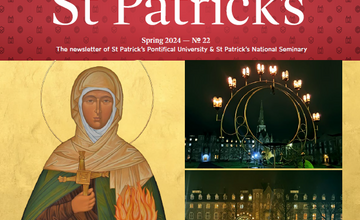
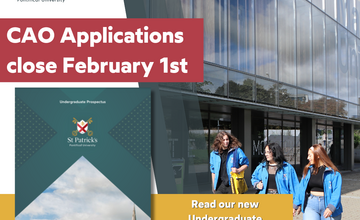
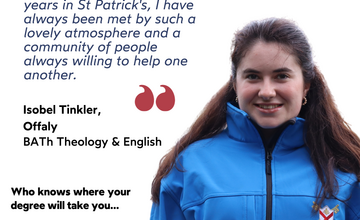
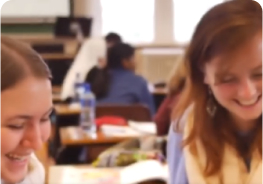
If you live outside Ireland, check out our dedicated area for international students.
Let’s talk
For Undergraduate queries: email admissions@spcm.ie.
For Postgraduate queries: email pgadmissions@spcm.ie.
For The Centre for Mission & Ministries queries, email: cmmadmissions@spcm.ie.

